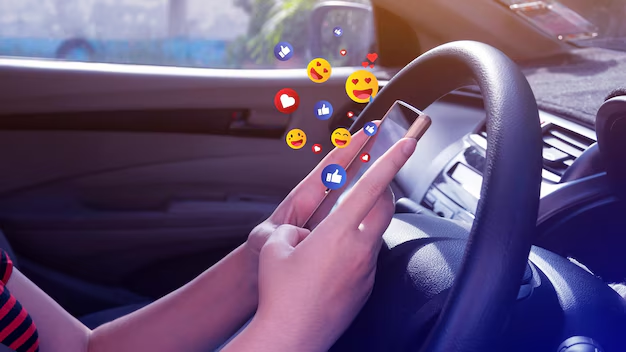In today’s digitally-driven world, social media platforms have transformed how we communicate, share information, and conduct business. However, these platforms also raise significant legal concerns, particularly surrounding issues of privacy, defamation, copyright infringement, and more. The term drive social media lawsuit has become increasingly relevant as users and businesses are finding themselves at the center of legal battles that involve social media activities. In this blog, we will dive into the different aspects of social media-related lawsuits, the driving factors behind them, and how businesses and individuals can protect themselves from potential legal issues.
What Drives Social Media Lawsuits?
Social media lawsuits can stem from a variety of legal issues, and there has been a significant increase in the number of such cases in recent years. As users increasingly share their lives online, the risk of facing legal repercussions rises. Below are some of the main causes of drive social media lawsuits:
1. Defamation and Libel
Defamation and libel lawsuits are among the most common types of social media legal actions. With the anonymity that social platforms provide, people may post defamatory statements or false accusations against others, either intentionally or recklessly. Defamation can damage personal or professional reputations, and if proven, can lead to costly lawsuits for both individuals and businesses.
A notable example would be a business losing clients due to false negative reviews or a public figure suffering damage from harmful rumors spread across social media. In these cases, a social media lawsuit can be filed to seek compensation for damages incurred due to online reputation damage.
You can read more on this topic on Wikipedia’s page on defamation.
2. Copyright Violations
Another driving force for drive social media lawsuits comes from the illegal sharing of content on social media. Posting images, videos, or even text that is copyrighted without the consent of the original creator is illegal. Even though social media platforms have copyright protection mechanisms in place, users are often unaware of the legal boundaries when it comes to content sharing.
Businesses and creators can file lawsuits against individuals or organizations who violate copyright law on social media, leading to potential legal challenges and fines. As businesses continue to use platforms like Instagram or Facebook for marketing purposes, protecting intellectual property becomes a top concern.
To understand more about copyright law on social media, check out the article from The Verge on Intellectual Property and Copyright.
3. Privacy Violations
Social media companies collect massive amounts of personal data, which is often used to tailor user experiences or create targeted ads. When there’s a breach of user privacy, such as unauthorized data sharing or leaking private content, lawsuits can occur. These actions may be driven by users’ concerns that their privacy rights are being violated by social media platforms or other third-party entities who mishandle data.
A high-profile example involves Facebook’s numerous lawsuits over data protection violations, highlighting how even large corporations face legal actions concerning privacy infringements.
4. Harassment and Cyberbullying
Harassment and cyberbullying are increasingly common online, especially on social media. When a person becomes the target of online harassment or cyberbullying, it can have profound emotional, psychological, and sometimes physical effects. This kind of harm has prompted people to take legal action against perpetrators, and social media companies themselves have been targeted in lawsuits for not taking sufficient steps to prevent or address harmful behavior on their platforms.
Social media platforms like Twitter and Facebook have established policies to combat harassment, but for many, legal avenues provide a way to seek justice when platforms fail to intervene.
5. Misleading Advertising and Scams
Fraudulent schemes and deceptive advertising campaigns on social media also lead to lawsuits. Businesses or individuals who participate in promoting scam products or misleading advertisements can face significant legal repercussions. If a social media influencer misrepresents a product or service, causing harm to consumers, they could be sued for breach of trust, false advertising, or fraud.
This can lead to “drive social media lawsuit” cases in which businesses, consumers, or government entities seek reparations.
How Can You Protect Yourself from Social Media Lawsuits?
While social media platforms provide great opportunities for marketing and engagement, they also come with risks. Here’s how you can protect yourself from the potential legal ramifications of participating in online communities.
1. Understand Copyright Laws
Before sharing images, music, videos, or other content created by someone else, ensure you have permission to use them. If you’re a business owner or content creator, consider working with a legal professional to help navigate copyright laws and avoid lawsuits.
2. Be Careful with What You Post
When using social media, it’s crucial to remember that anything you post can be shared, screenshotted, and may come back to haunt you. Refrain from making harmful or defamatory remarks about people or companies. It’s wise to think before posting, especially if it involves a sensitive subject or another person.
3. Prioritize Privacy
Always keep privacy in mind while using social media, whether as an individual or a business. Implement strict privacy controls, know who is viewing your posts, and be cautious about sharing personal information that could potentially be misused.
4. Report Illegal Activities
If you encounter illegal activities or observe content that violates copyright or other laws, report it immediately. Social media platforms have guidelines and systems in place for reporting such incidents. Take advantage of these tools to help protect yourself and others.
5. Work with Legal Professionals
If you’re unsure about the legality of certain online actions, don’t hesitate to consult with an attorney specializing in digital law or online business. Lawyers with expertise in drive social media lawsuit cases can help you navigate the complex landscape of online content and ensure you’re on the right side of the law.
Conclusion: The Need for Legal Awareness in the Age of Social Media
The rise of social media platforms has reshaped the way we communicate and interact, but it has also brought about new legal challenges. Understanding the potential risks and taking steps to prevent legal issues, like defamation or privacy breaches, is crucial for both individuals and businesses. As the drive social media lawsuit trend continues to grow, it’s important to stay informed about your legal rights and responsibilities when using social media.
By being cautious with the content you share, prioritizing privacy, and knowing when to seek legal help, you can protect yourself from costly lawsuits and safeguard your reputation online. Social media may be a tool for personal expression or business marketing, but without proper legal awareness, it can also become a potential legal minefield.



1 Comment
Pingback: Analyzing BounceMediaGroup.com's Social Media Statistics - nymagazine.org